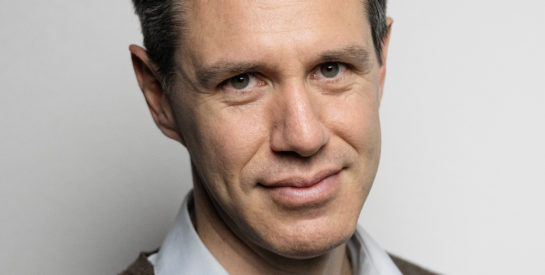
Interdisciplinary study of institutions and society in the 21st century – politics, economics, technology, epistemology

Module Coordinator
Uroš Kranjc, Ph.D.
Research Associate at the Institute of Philosophy ZRC SAZU
uros.kranjc@zrc-sazu.si
MODULE DESCRIPTION
The study module entitled Interdisciplinary study of institutions and society in the 21st century – politics, economics, technology, epistemology originates from content-rich and methodologically diverse crossroads of the humanities and social sciences. Its structural core is entirely interdisciplinary-oriented, contributing to the general mission of the module, i.e. to examine the future challenges of our age from various perspectives.
The central research and educational aim of the module is to conduct a critical analysis of current (mega)trends – technological development, climate change, the concurrent transformation of the economic institutional framework and social transformation, while simultaneously absorbing new epistemological approaches and representations of the sensible in the fields of science, ideology, culture, and the arts. The curriculum of the module and its content only partially rely on clear distinctions between particular scientific disciplines or discourses, for its main focus is on concrete problems of our time. These problems demand new synthetic and interdisciplinary points of view, a multidisciplinary account of the methodologies and outputs, and the construction of new epistemologies. In the 21st century we are witnessing accelerated changes in the technological, environmental, academic, discursive, institutional, cultural, political, and economic landscape, which are forming new material bases that cannot be sufficiently reasoned and articulated within the current classical theoretical and methodological frameworks of knowledge, but rather demand new assessment on all levels. Students will therefore reflect on state-of-the-art research in artificial intelligence, “green” economics, heterodox approaches in economic and social theory, critique of liberalism in the 21st century, and newly arising epistemological approaches. The module conveys an opportunity for those students seeking to comprehend the phenomena occurring as a new and autonomous problematic that first needs to be properly articulated, then critically assessed and elaborated using new methodological, epistemological, and phenomenological tools. The module will not provide a set of definite answers, but rather induce students to formulate their own views, actively seek critical arguments, and introduce their own formalisation apparatuses that will address the issues they choose to investigate in the present and coming times.
Each individual course in the module curriculum is set autonomously, enabling students to combine different courses from other modules at the Post Graduate School ZRC SAZU. In this respect, the course The Philosophy of Artificial Intelligence: Human Machines, Technological Singularity, and Superintelligence offers insight into the modern versions of techno-science, which numerous authors intertwine with environmental studies and endorse in contemporary discourses of so-called post-humanism and post-phenomenology. On the other hand, tracking technological change does not mean simply critiquing it. Rather, it enables the extraction of a set of problems by way of retracing them from their consequences to their origins in the very social institutions that gave rise to them. How these tendencies are historically reflected in ever new verifications of social structures will be addressed in After Neoliberalism: 21st-Century Liberalism and Its Critics. The political economy and the facets of liberal, socialist, and other social practices will be analysed as part of the Critical Theory of Institutions course, the aim of which is to provide a frame for an alternative mode of economic thinking. The course Visual Epistemology seeks to establish an autonomous epistemology of visual thinking, according to which one can apprehend, conceptualise, and intervene in complementary fields such as anthropology, archaeology, philosophy, cultural and intellectual history, environmental studies, etc. Furthermore, the course Alternative Approaches to the Green Transition will provide insight into the current theories and practices of environmental management and “green” economic theories of growth and sustainability, thus enabling potential cross-fertilisation with other modules of the Post Graduate School ZRC SAZU, namely Human Geography and Biodiversity and Ecology from the natural-sciences-oriented programme Environmental and Regional Studies, etc.
Each course provides a list of selected references and literature, endorsing both classical and contemporary works, with an emphasis on an interdisciplinary approach to the above-outlined problems

MODULE RESEARCH PROFILE
Obvezni predmeti modula z nosilci in nosilkami
Research, Argumentation, and Writing Methods in the Humanities and Social Sciences
Prof. Borut Telban, Ph.D.,
ECTS: 6
Individual Research Work I
ECTS: 16
Research Seminar I
ECTS: 26
Individual Research Work II
ECTS: 44
Research Seminar II
ECTS: 4
Individual Research Work III
ECTS: 30
Doctoral dissertation
ECTS: 30
Izbirni predmeti modula z nosilci in nosilkami
The philosophy of artificial intelligence: human machines, technological singularity and superintelligence
Asst. Prof. Gregor Strle, Ph. D. ,
ECTS: 6
After neoliberalism: 21st century liberalism and its critics
Prof. Rado Riha, Ph.D.,
Tomaž Mastnak, Ph. D. ,
ECTS: 6

